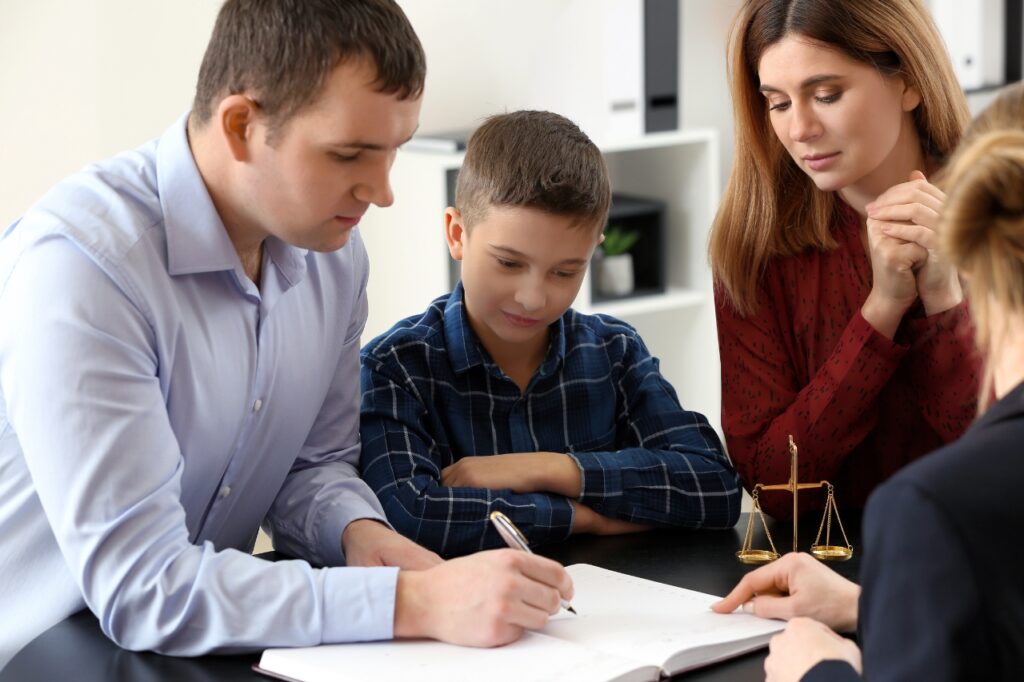When navigating divorce or separation, many parents rush to ask lawyers to “define full custody”, but very few actually understand what the term means in South African law. Unlike in some other countries, South Africa does not use “full custody” as a formal legal term. Instead, parental responsibilities and rights are broken down and assigned in ways that prioritize the child’s best interests above all else.
What does South African law mean when people say “full custody”?
In South Africa, the law does not officially define full custody as an all-encompassing legal status. Instead, the Children’s Act 38 of 2005 provides for parental responsibilities and rights, these include care, contact, guardianship, and maintenance. When parents refer to “full custody,” they usually mean that one parent has both primary residence of the child and exclusive decision-making authority. However, this can be misleading because, in most cases, both parents still retain some level of responsibility, unless the court rules otherwise.
Is there a difference between care, contact, and guardianship?
Yes, and understanding this distinction is key when trying to define full custody in the South African context. Here’s how the Children’s Act breaks it down:
| Legal Term | Description |
|---|---|
| Care | Where and with whom the child lives, and who makes daily life decisions |
| Contact | The right to spend time with the child or communicate regularly |
| Guardianship | Major decisions like schooling, relocation, passports, and medical consent |
Many people believe full custody means all of these belong to one parent, but that outcome is rare and only granted in exceptional cases where it is clearly in the child’s best interest.
Can one parent be granted all parental rights?
While possible, it’s uncommon. South African courts follow a child-centric approach and generally believe a child benefits from the involvement of both parents. However, if one parent is abusive, neglectful, or absent, the court can limit or remove that parent’s rights through a formal application. The High Court has the authority to assign full parental responsibilities to one parent if circumstances warrant it. To explore such a case, contact a top family law attorney in Durban.
What’s the difference between sole custody and joint custody?
Although not terms used directly in South African legislation, people often use sole custody to refer to one parent having full care and guardianship, while joint custody implies shared responsibilities. However, legally, South Africa does not award “custody” in this binary way. The law assigns care and contact in proportions that suit the child’s needs, these can be sole, joint, or even supervised, depending on the facts of the case.
What does the court consider when assigning rights and responsibilities?
The primary consideration is the best interests of the child, which is the cornerstone of all decisions involving minors. Courts look at factors like:
- Emotional ties between parent and child
- Stability of the living environment
- Each parent’s ability to provide care
- History of abuse, neglect, or substance abuse
- Willingness to cooperate and communicate
If one parent applies to define full custody legally in court, they must show why awarding primary rights to one parent would better serve the child.

How does a parenting plan affect custody arrangements?
A parenting plan is a written agreement that outlines how parental responsibilities and rights will be shared. It’s a powerful tool for co-parents and is often made an order of court. The plan can clarify living arrangements, contact schedules, school decisions, and more. If both parties agree, it helps avoid disputes. If not, a court may impose a plan based on the child’s needs. For help drafting a compliant and enforceable plan, speak with a contracts attorney.
Can full custody include excluding the other parent entirely?
This only happens in extreme cases, such as abuse, abandonment, or proven harm to the child. Even then, courts may grant supervised contact rather than completely terminating the other parent’s rights. Total exclusion is very rare, as courts aim to maintain a relationship between the child and both parents whenever possible. If you believe your situation warrants sole care, it’s essential to build a strong, evidence-based case, consider legal support from a litigation attorney.
What role does the Office of the Family Advocate play?
When parents cannot agree, the Family Advocate becomes involved to assess the home environment, interview the child, and provide the court with a recommendation. They do not make final decisions, but their input carries significant weight. This process ensures the child’s voice is heard and helps the court determine a fair distribution of care and contact.
Is a will important when one parent has full care?
Yes. Even if one parent has full care or guardianship, without a valid will, guardianship of the child after death is not guaranteed. The court will decide who becomes the child’s legal guardian unless specified. If you have full responsibilities, it’s crucial to work with an estate planning attorney to ensure your child is protected legally and financially.
Where can I get help understanding custody and parental rights?
Navigating parenting rights after separation or divorce can be legally complex and emotionally exhausting. Whether you’re trying to define full custody, draft a parenting plan, or protect your rights, our team is here to help. Visit our get legal advice page to book a consultation with attorneys who specialise in South African family law.
Learn more about child custody on Wikipedia.


